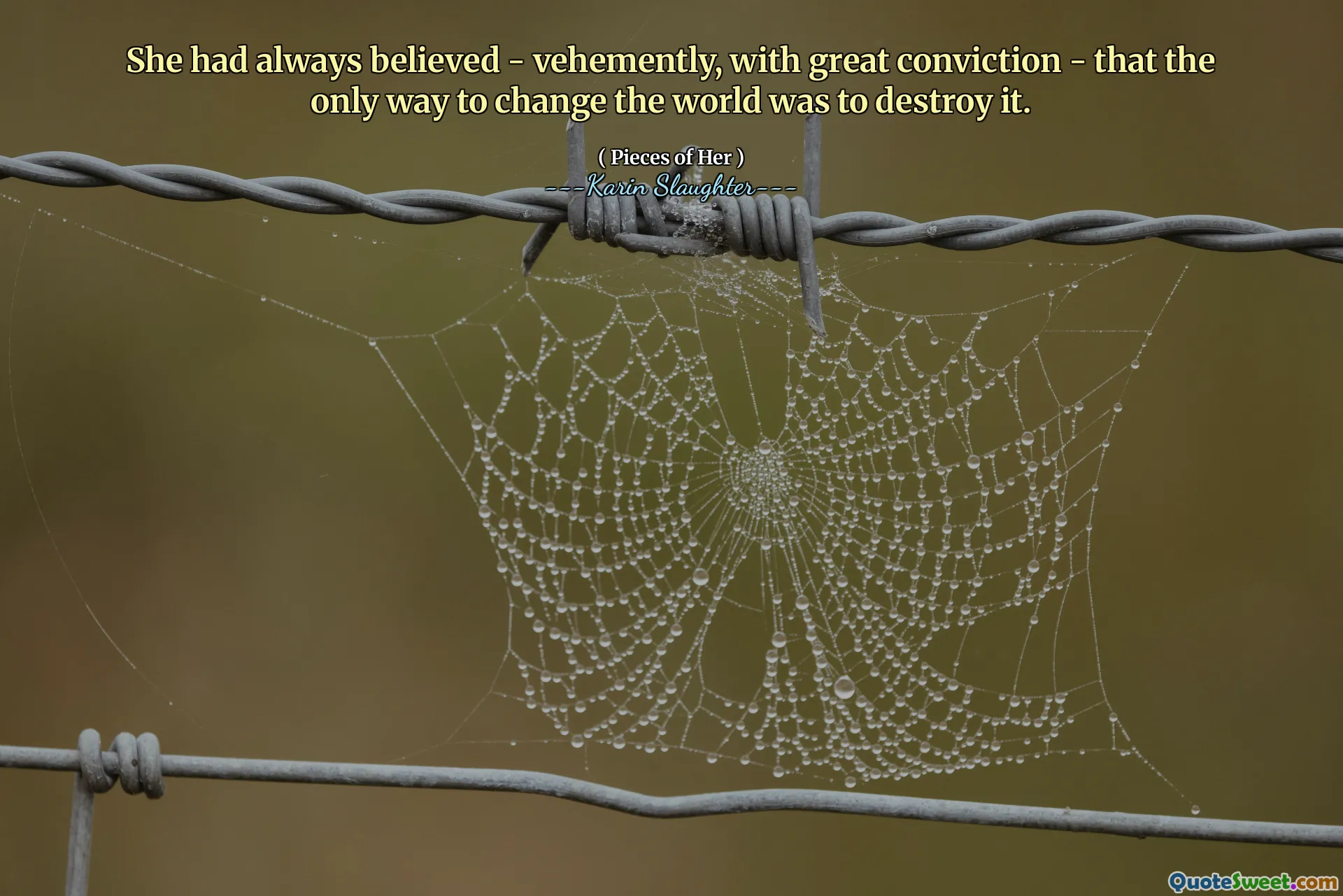
She had always believed - vehemently, with great conviction - that the only way to change the world was to destroy it.
This quote provokes a profound reflection on the nature of transformation and the potentially destructive paths that some believe are necessary for meaningful change. It underscores a paradox often encountered in revolutionary thought: the belief that to create a better future, one must sometimes dismantle or obliterate the existing structures. Such perspectives are especially compelling in literature and history, where radical ideologies have driven significant upheavals. In the context of 'Pieces of Her' by Karin Slaughter, it hints at the complexities folks face when their convictions inspire actions that may bring about chaos or profound consequences. The notion that destruction can be a form of renewal resonates with philosophical debates on whether demolishing old systems is needed to make way for new ones. On one hand, this mindset reflects a passionate desire to correct injustices and challenge the status quo; on the other, it highlights the inherent risk of such approaches—how violence or total destruction can spiral beyond control, leading to unforeseen suffering. It also invites introspection about the individuals who hold such beliefs and what experiences have led them to see destruction as a necessary step. Ultimately, it raises essential questions about moderation, the morality of upheaval, and whether true change can be achieved without causing harm. This quote acts as a stark reminder of the fine line between revolutionary zeal and destructive extremism, prompting us to critically examine our impulses toward change and the price we are willing to pay for it.






